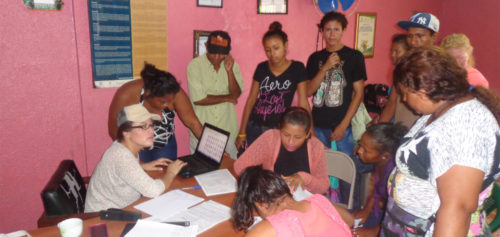Posted by International Alliance of Waste Pickers
Written by Rednica
Region Latin America
Country Nicaragua
July 21, 2017
Translated by Laura Morillo
Written by Rednica. Rednica en línea. 05/12/2017

Rednica´s offices are continuously visited by grassroots waste pickers for the fulfillment of the legal requirements for the organization of recycling cooperatives.
The demand for actions to manage the large quantities of garbage produced by urban centers and the search for economic alternatives of families that have been for years dedicated to the recycling of solid waste have driven the initiative of the creation of 15 new cooperatives of grassroots recyclers in Nicaragua.
The constitution of the 15 new cooperatives is promoted by the Network of Nicaraguan Entrepreneurs of Recycling (REDNICA), and it was one of the recommendations of the study “Socioeconomic Characterization and Health of Recyclers in urban centers, main landfills of all regional head cities in Nicaragua 2013 – 2014 “.
According to the study, of a sample of 427 people engaged in recycling, 76% of these informal workers do not belong to any organization of recyclers. It also indicates that most people are young people in the age range of 20 to 34 years and 30 to 44 years.
Regarding organizational aspects, “Belonging to an organization is beneficial for most of the respondents as expressed by some of the people who recycle and who are part of Red Nica,” organized we gain more confidence to strengthen our grassroots”, emphasizes the report.
The cooperatives will organize in municipalities like Nagarote, Jinotepe, Masaya, Diriamba, Nindiri, Chinandega, Granada, El viejo, Juigalpa, among others.
Why form cooperatives?
According to the International Cooperative Alliance, it is an autonomous association of people united voluntarily to meet their common economic, social and cultural needs and aspirations through a jointly owned and democratically managed company.
This implies that the cooperative is a corporate form of organization which seeks that its members benefit equally under principles of equity, equality and joint responsibility.
Tweet

